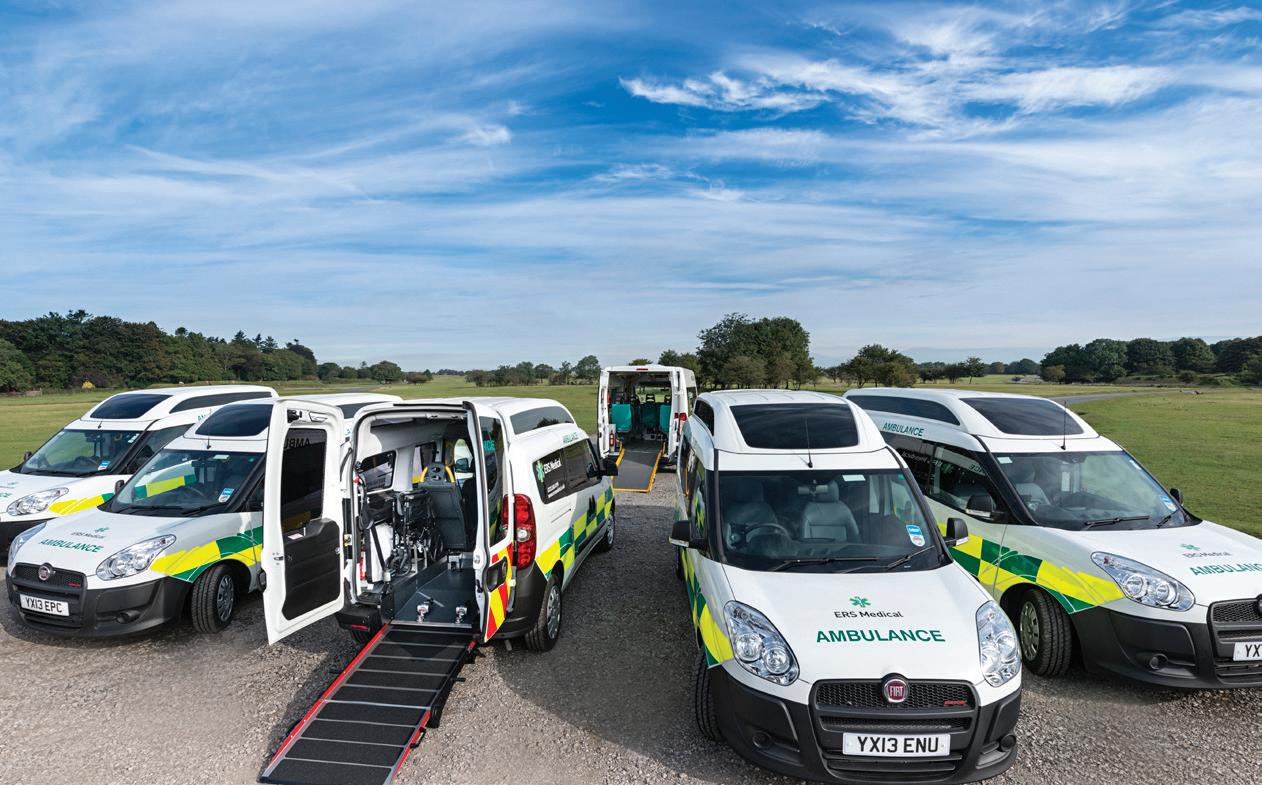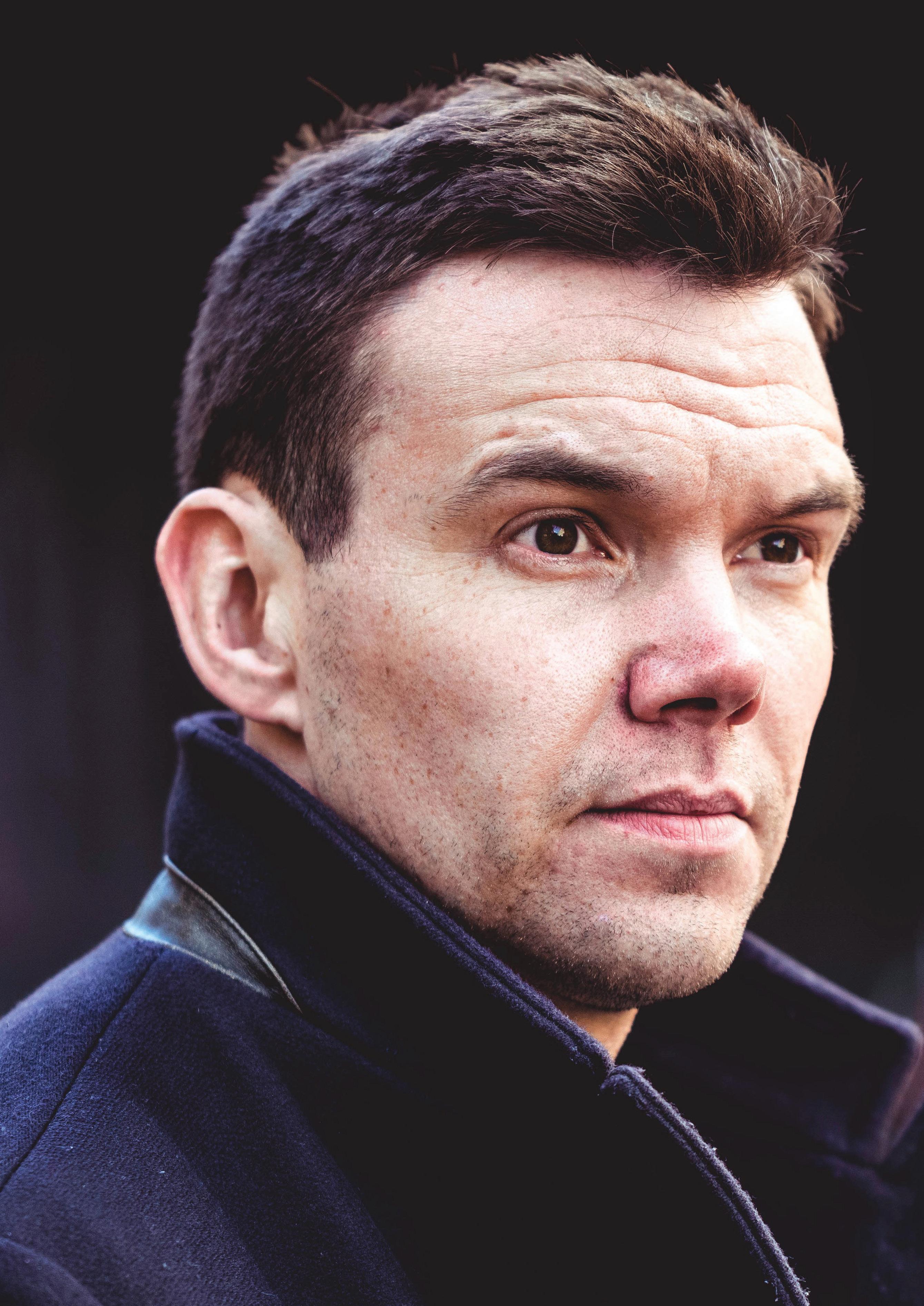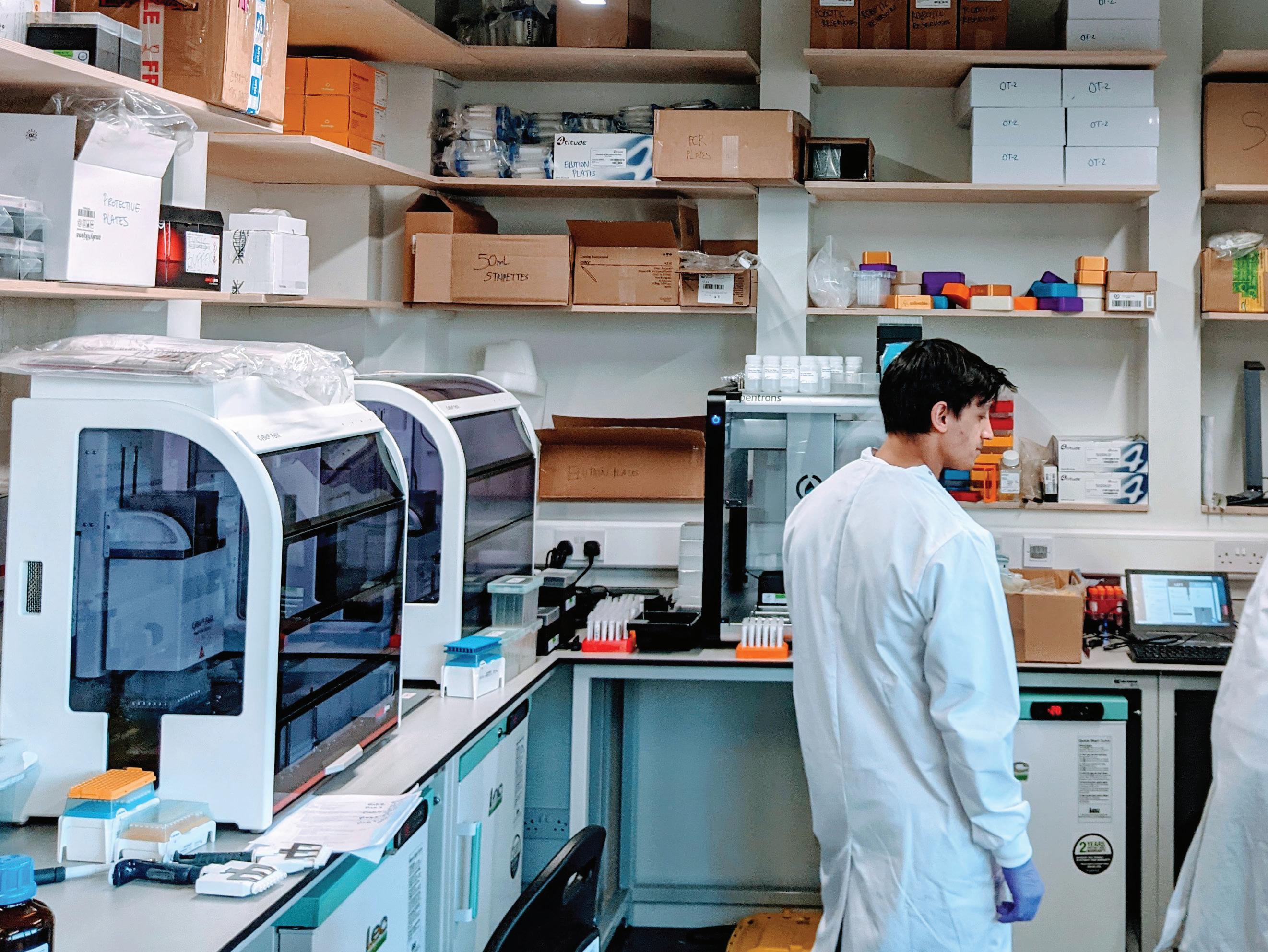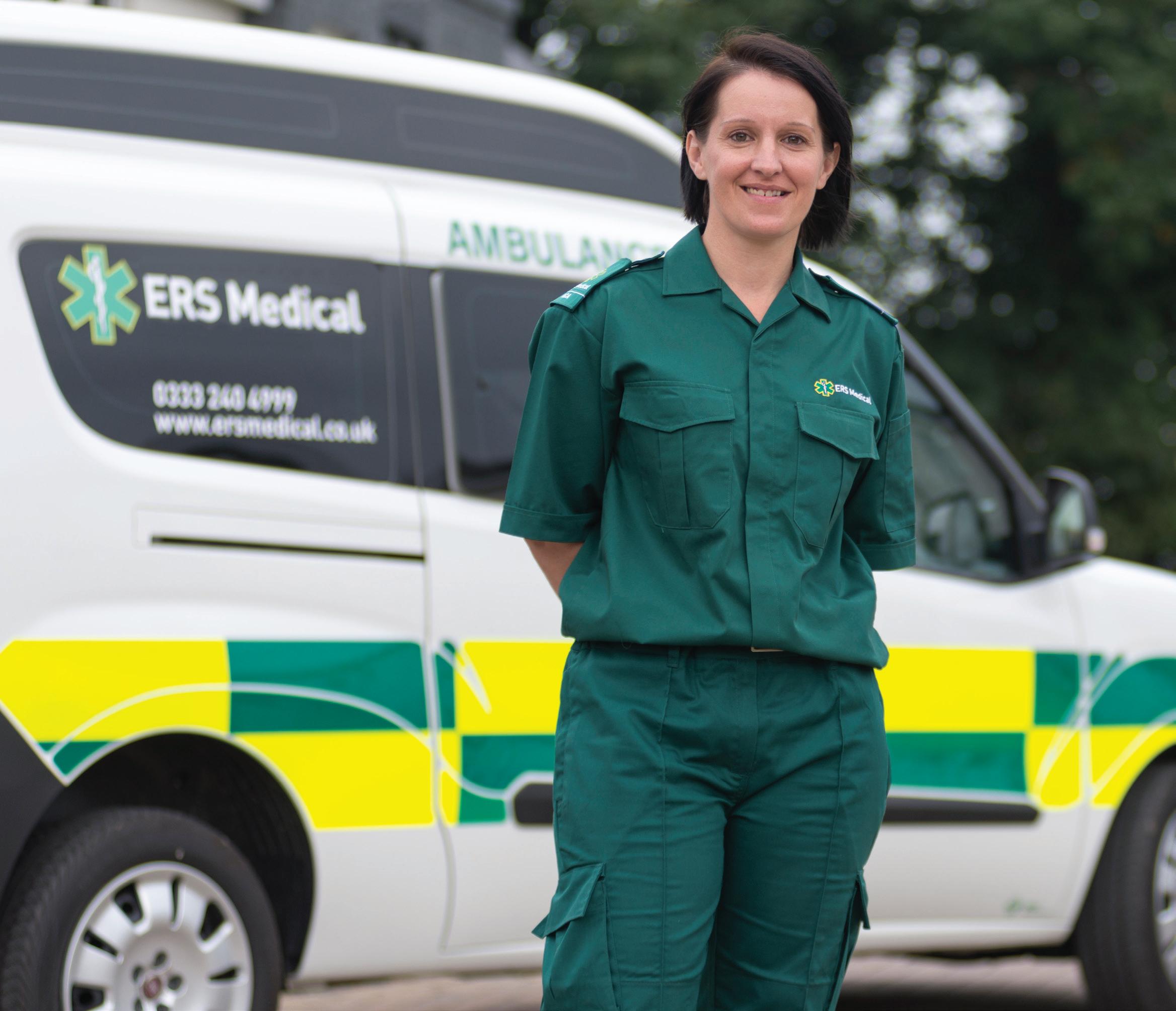
5 minute read
The Covid-19 transport challenge
Patient transport company ERS Medical has created a digital tool for transport resource modelling in an industry first. HealthInvestor UK reports

New figures show that Covid-19-related pressures are that have emerged since the onset of the pandemic. This is putting a strain on patient transport activities across available via an online tool (free to the NHS) through which the NHS. The time taken to implement important patient transport commissioners and procurement managers measures to keep journeys safe means a drop in capacity can easily and clearly understand their procurement needs. of up to 23%. With benchmarking for journey and resource By using data from multiple contracts and hundreds of requirements already challenging, these measures add greater thousands of journeys each year, the tool can identify trends complexity. that predict indicative resource requirements with minimal
The delays come from the requirement for social distancing inputs such as population size, geography, and service type. in vehicles reducing the number of seats available to It also allows for a comparison between pre-Covid -19 and planners. In addition, the time taken for control measures Covid-19-impacted resource requirements. such as vehicle sanitation processes and needing to plan and The model can generate bespoke recommendations undertake additional journeys so vulnerable or Covid-19- according to current and projected activity levels. Based on positive patients can travel alone results current Covid-19 assumptions, ERS Medical in significant challenges. found that the combined impact of these
Earlier this year, ERS Medical developed variables is an efficiency loss of 23%. a model to forecast procurement needs for It will be important More importantly, it can also determine patient transport based on key variables to ensure that the necessary resources required to people who do mitigate the losses incurred and work with not need to be commissioners and procurement leads to spending additional ensure they are getting the best value from their contracts. nights in hospital In anticipation of winter pressures on are not doing so the NHS, it will be important to ensure that people who do not need to be spending additional nights in hospital are not doing so, both to ensure bed availability for Covid-19 patients and to reduce risks of infection among those who do not have the virus. With England facing fluctuations in restrictions and infections, it’s critical that the NHS is prepared for the challenge of ensuring a safe and efficient discharge process – and ensuring appropriate transport resources are in place is a critical element in this. Andrew Pooley, managing director of ERS Medical, says: “In the middle of a global pandemic, and with the UK facing varying lockdown restrictions, it’s more critical than ever to ensure that resources are maximised and allocated as efficiently as possible.”
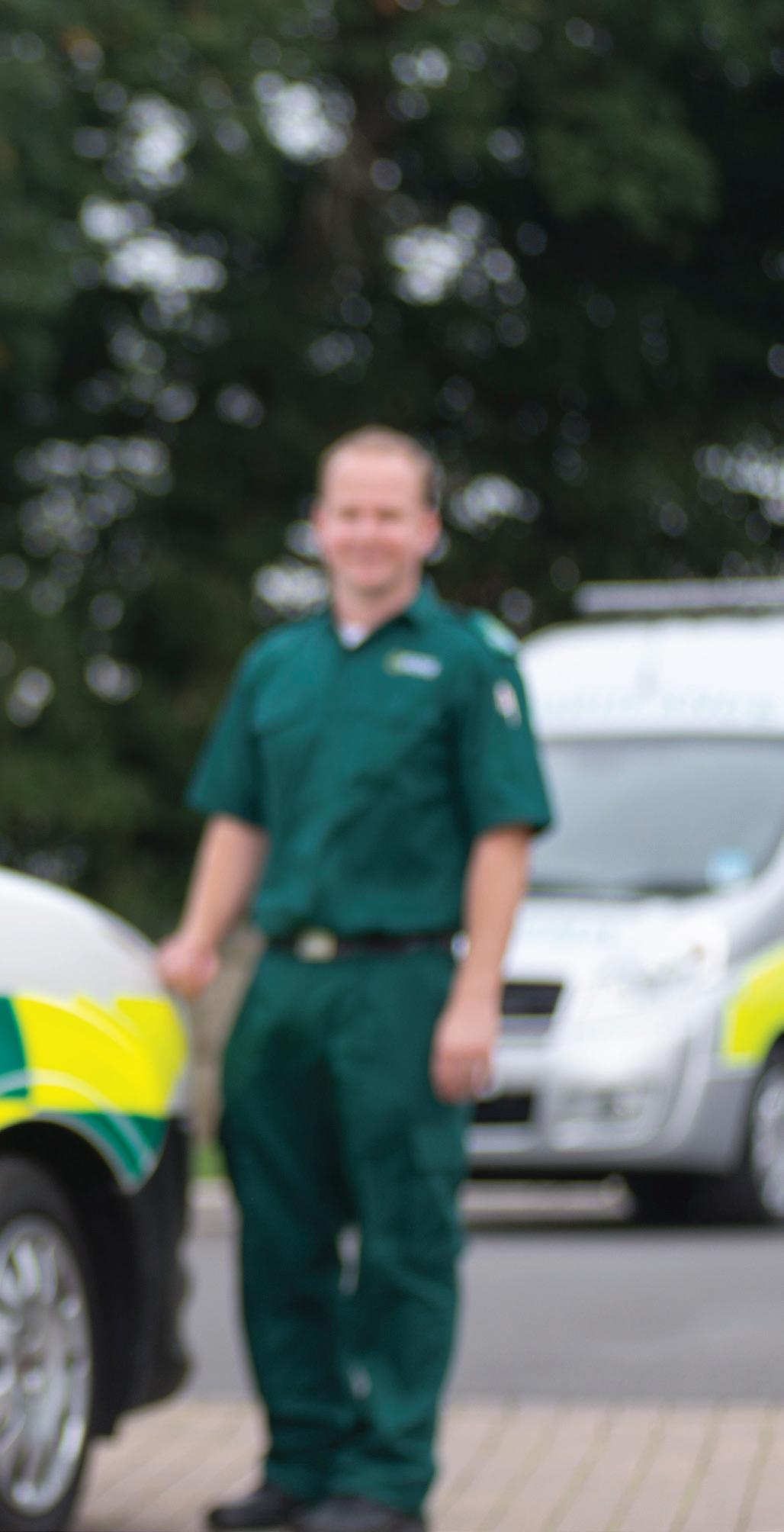
Pooley has led a turnaround of ERS – which employs 1,000 staff and now has 24 sites across the UK and 600 vehicles – focusing on restructuring to bring the business towards break-even and improving culture and compliance.
In its last accounts filed at Companies House, ERS reported a £1.3 million pre-tax loss on a £25 million turnover in 2018. According to Pooley, the business had a profitable fourth quarter in 2019 and despite the challenges has remained profitable throughout 2020.
It was Pooley’s experience as an army reservist in Afghanistan that set him on this healthcare career path. The university science graduate was working as part of a protection team, looking after the medical response team helicopter on the ground as it picked up casualties, and flying with the doctors, nurses and paramedics as they cared for the patient on board.
“It was really quite a remarkable thing,” he recalls. “We would be flying 50 feet above the ground at full speed in one of the fastest helicopters there is. You’ve got a casualty in the back with a doctor who is frantically trying to save a guy’s leg or stem a bleed. I was watching them thinking ‘this is incredible’ and from that point I knew that when I got back, I wanted to be in healthcare.”
When he returned to civilian life in 2013, Pooley initially applied to be a paramedic but then saw an opportunity to be a junior operations manager in Plymouth at patient transport firm ERS Medical, then owned by the American company Stericycle.
Pooley realised the patient transport industry was a good fit for him. “The role suited me down to the ground and I loved it, leading and motivating teams through complex projects often under pressure and all with a very human element,” he says.
Pooley went on to oversee the rapid turnaround and growth of First Care Ambulance (FCA) as operations director in 2016, increasing revenue and achieving a good Care Quality Commission rating in less than 18 months. The following year, he and the other FCA directors led a complex acquisition bid for the trade and assets of Leeds-headquartered ERS Medical at a time when ERS was incurring significant losses.
“We saw an opportunity because the front line staff and local management were fantastic and it had a really good geographical spread,” he says.
Pooley led a project to move more than 850 staff, associated premises and assets into a new business, ERS Transition, which trades as ERS Medical. The business was based on a refined version of the successful FCA model, providing patient transport for NHS clinical commissioning groups, NHS trusts and private organisations.
Key to the delivery of ERS Medical turnaround strategy, he says, has been the implementation of a well-defined leadership model, Mission Leadership, based on the military principle of ‘Mission Command’. This involves the empowerment of managers at all levels to solve problems creatively within a senior manager’s intent.
The turnaround project completed just before the Covid-19 pandemic hit the UK. In March this year, Pooley sold his shareholding in FCA and completed a 100% buyout of ERS. The business grew turnover by 27% in 2019.
However, from the end of March this year, activity levels at ERS fell by 50% due to the cancellation of outpatient hospital appointments as the UK went into lockdown.
Despite the challenges, Pooley said ERS Medical delivered on its existing service level standards and provided extra services to support the NHS. Pooley adds: “I’m really pleased to say that we didn’t make any redundancies as a result of the pandemic. We maintained recruitment and training – with relevant safety measures – and implemented a policy of prioritising recruitment of staff friends and family members who had been made redundant as a result of Covid-19.” “There have been some real lows and it’s been really tough at times at ERS because it’s been such a massive turnaround.” He adds: “However, I Andrew Pooley, think the really exciting managing director thing is that we’re just of ERS Medical getting started.” n

